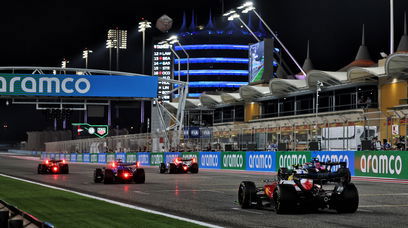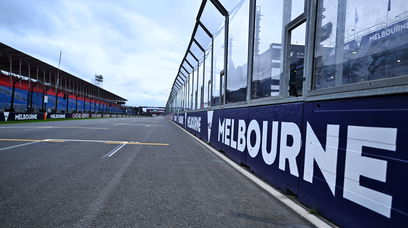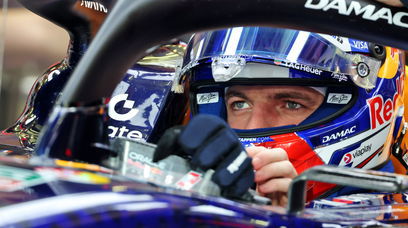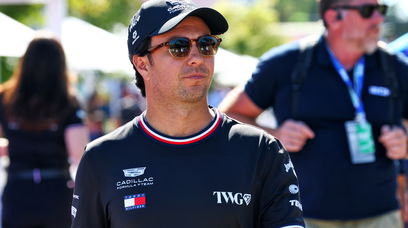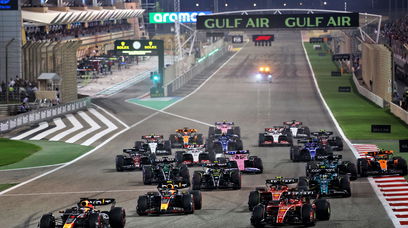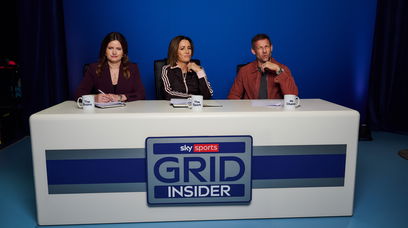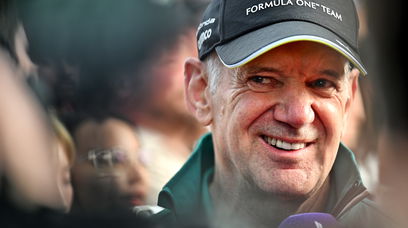The FIA has detailed why Charles Leclerc received a lighter punishment to Max Verstappen for swearing during an official press conference over a grand prix weekend. Both drivers used the F-word, with Verstappen's coming first, in the Thursday drivers' press conference ahead of the Singapore Grand Prix. The Dutchman was handed what is akin to community service for his indiscretion, something that provoked him to retaliate, limiting his answers for the rest of the weekend in Marina Bay and holding his own impromptu media huddles in the F1 paddock. Meanwhile, Leclerc swore after finishing third in the Mexico City Grand Prix, over a month after the initial incident. However, despite the apparent similarities between the cases, the Ferrari driver was only fined for his breach of conduct. There appears to be a distinguishable difference in how the two drivers handled their respective slips of the tongue, which is central as to why the latter was not punished as severely as the former. The reason from the official FIA stewards document for the decision is outlined below.
Reason provided by the FIA stewards for Leclerc's fine
The Stewards received a report from the FIA Media Delegate summons and heard from the driver of Car 16 (Charles Leclerc), team representative and reviewed the written transcript. It is the policy of the FIA to ensure that language used in its public forums, such as press conferences, meets generally accepted standards for all audiences and broadcasts. In particular this is true of statements made by participants in the World Championships and thus being role models both inside and outside the sport. This is clear in the regulations of the FIA and has been reinforced through previous cases brought before the Stewards in FIA Formula One World Championship. The Stewards reviewed the transcript of the Post-Race Drivers’ Press Conference in Mexico and found that Charles Leclerc, the driver of car 16, used language in response to a somewhat leading question asking him “what did you say to yourself” in relation to the significant moment towards the end of the race when Leclerc was fighting to control the car at the exit of the last corner. In response Leclerc used coarse language being the accurate recollection of what he thought to himself at the time. Leclerc immediately realized his error and apologized. Such language is not considered suitable for broadcast. This is “Misconduct” as defined in Article 20 of the International Sporting Code, and is a breach of Article 12.2.1.k. The Stewards noted that the language was not directed at anyone or any group and that Leclerc immediately apologised. During the hearing Leclerc expressed his regret for his momentary lack of judgment and shared that he understood his responsibility as a role model for the sport. The Stewards considered the mitigation factor that Leclerc was immediately apologetic. The Stewards while noting that the driver’s contrite behavior conclude that a breach has occurred and a penalty is warranted. The Stewards do not consider that this breach reached the same level as the most recent case and as such chose to levy a fine of €10,000 with €5,000 suspended pending no repeat within 12 months.
The critical passage is the final paragraph, whereby the stewards deem Leclerc being immediately apologetic as the mitigating factor - and the reason for the difference in punishment. As soon as Leclerc realised his error, he said: "Sorry! Oh no! Oh nooo! I don't want to join Max," whilst nervously laughing, which appears to be the key differentiator between the two drivers. In fact, the stewards in Sao Paulo went as far as to refer to Verstappen's penalty, saying: "The Stewards do not consider that this breach reached the same level as the most recent case and as such chose to levy a fine of €10,000 with €5,000 suspended pending no repeat within 12 months." Conversely, the critical passage in the reason of the decision document for Verstappen's penalty is below for comparison.
Part of the Reason provided by the FIA stewards for Verstappen's punishment in Singapore
When summoned to the Stewards the driver explained that the word used is ordinary in speech as he learned it, English not being his native language. While the Stewards accept that this may be true, it is important for role models to learn to be mindful when speaking in public forums, in particular when not under any particular pressure. Verstappen apologized for his behaviour. The Stewards note that significant fines have been levied for language offensive to or directed at specific groups. This is not the case here. But, as this topic has been raised before and is well known by the competitors, the Stewards determined to order a greater penalty than previously and that Verstappen be “obliged to accomplish some work of public interest” (Art. 12.4.1.d of the International Sporting Code), in co- ordination with the Secretary General for Sport of the FIA.
Most read
